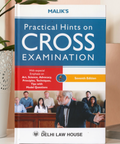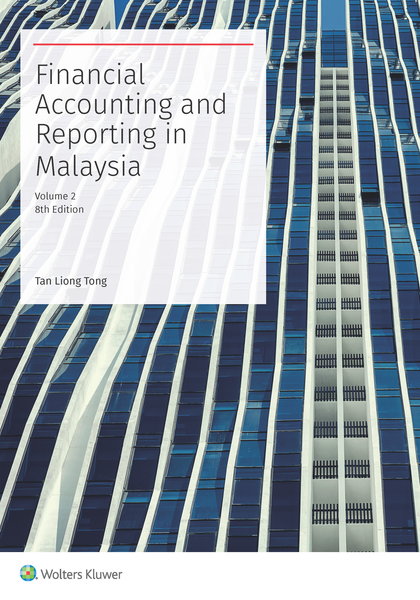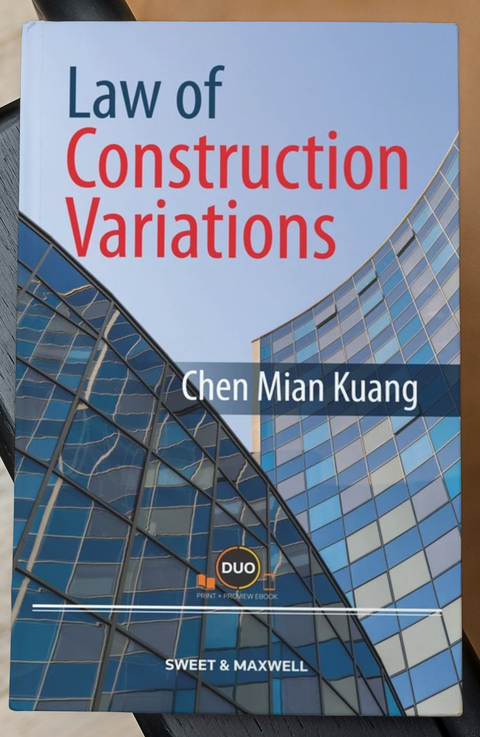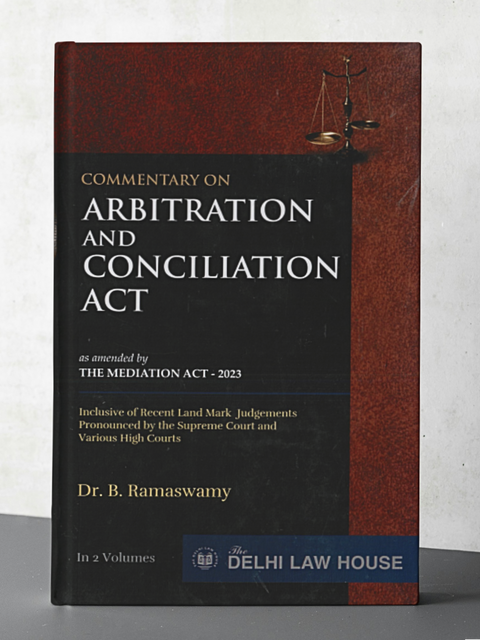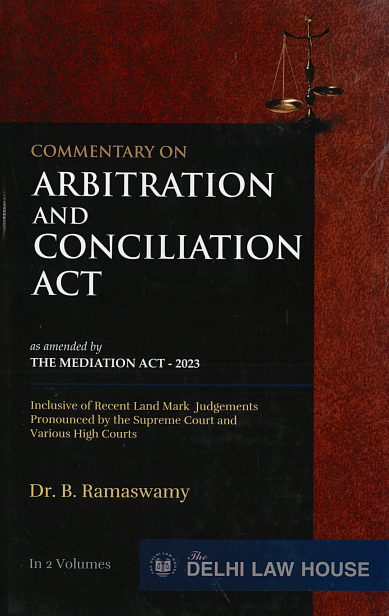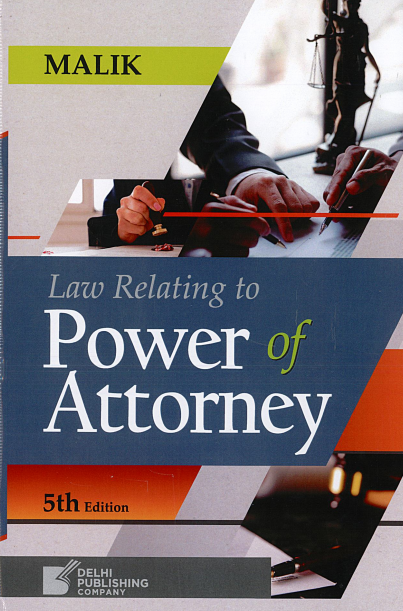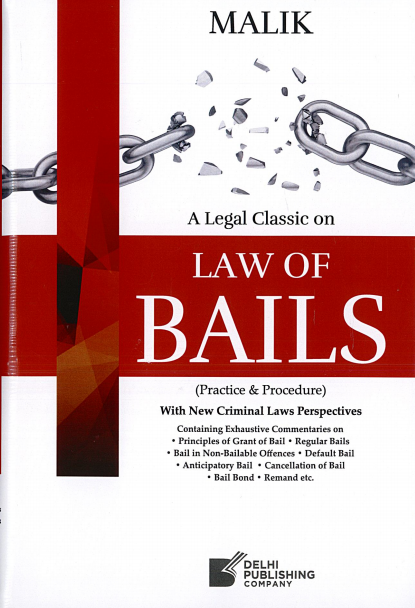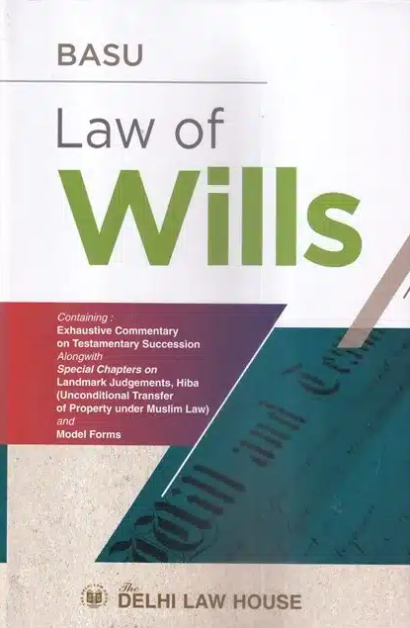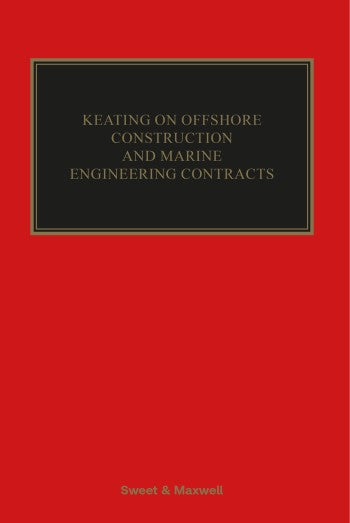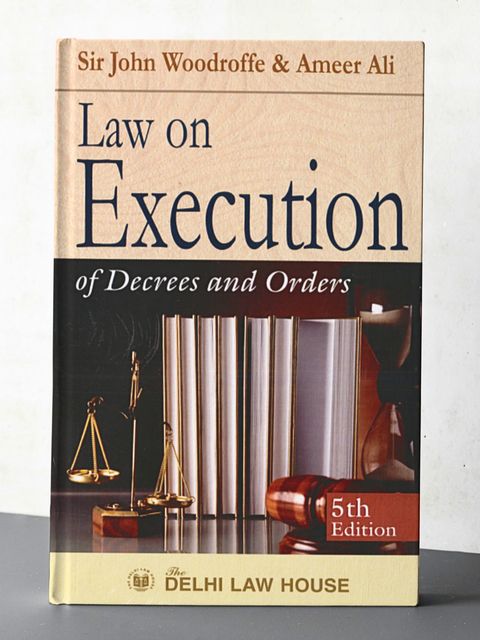
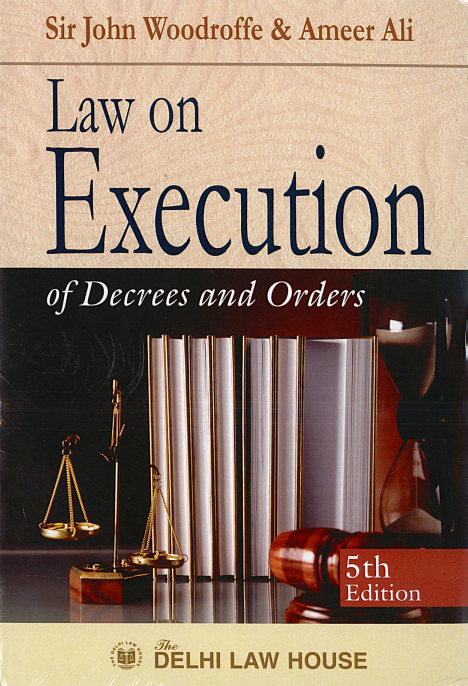
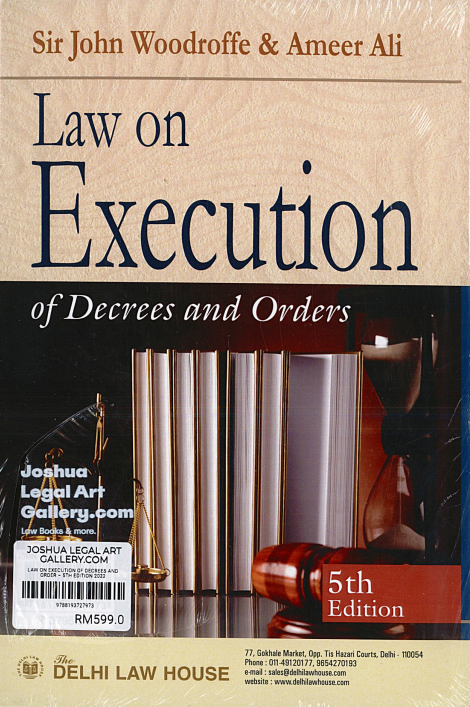


Law On Execution Of Decrees And Order – 5th Edition 2022
Law On Execution Of Decrees And Order – 5th Edition 2022
| Author | Sir John Woodroffe & Ameer Ali |
| Publication Date | 2022 |
| ISBN | 9788193727973 |
|
Format |
Hardcover |
| Publisher | Delhi Law House |
The subject of "Execution" holds great significance in the realm of civil litigation. The provisions related to execution are outlined in the Code of Civil Procedure, 1908. However, it is noteworthy that the term "Execution" itself is not explicitly defined anywhere in the Code. A review of the definition section, namely Section 2, reveals that the term "Execution" is absent. There is, however, an indirect mention in Section 2(10), which defines a "Judgment-debtor" as any person against whom a decree has been passed or an order capable of execution has been made. Similarly, Section 2(3) defines a "Decree-holder" as any person in whose favor a decree has been passed or an order capable of execution has been made.
For the general public, "Execution" can be described as the process of enforcing court orders or judgments by a public officer, following the court's directives. This enforcement occurs only after all aspects of the case have been thoroughly adjudicated and a formal decision has been rendered. Section 38 of the Code is particularly relevant here, stating that "a decree may be executed either by the Court which passed it, or by the Court to which it is sent for execution."
Regarding the execution of decrees related to immovable property, sub-rule (1) of Order XXI clarifies that if any immovable property is sold in execution of a decree, the decree-holder, the purchaser, or any person entitled to a share in the ratable distribution of assets, or whose interests are affected by the sale, may apply to the Court to set aside the sale on the grounds of material irregularity or fraud in its publication or conduct. However, as per sub-rule (2) of Rule 90 of Order XXI, a sale will not be set aside merely on the basis of irregularity or fraud unless substantial injury has been caused to the objector due to such irregularity or fraud. Furthermore, this objection must be one that could not have been raised before the sale proclamation was drawn up, as stated in sub-rule (3) of Rule 90. A defect or absence of attachment of the property alone is insufficient grounds to set aside a sale. It is essential to demonstrate that substantial injury has occurred where fraud or material irregularity has caused injustice.
The book "Law on Execution of Decrees and Orders," now in its Fifth Edition, retains the basic structure established by the original authors. The framework of the 21 chapters remains unchanged, but the case laws have been updated to include the most recent judicial pronouncements from the Supreme Court and High Courts. This edition not only covers the subject comprehensively but also includes an in-depth examination of legal precedents and judicial perspectives. The principles of execution law are thoroughly explored, making this book a valuable treatise on the subject. Like its previous editions, this edition will be indispensable to the judiciary, legal practitioners, and anyone involved in this branch of law.
Latest releases
Get your copy today!


